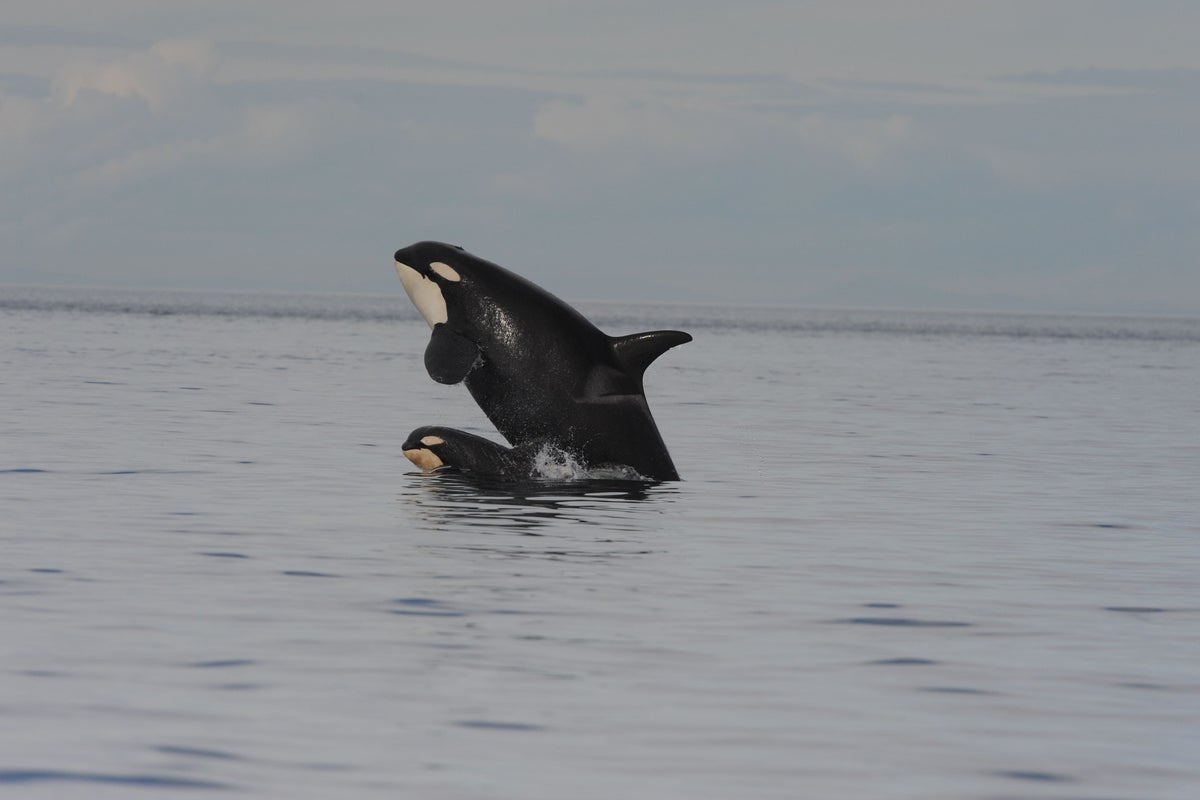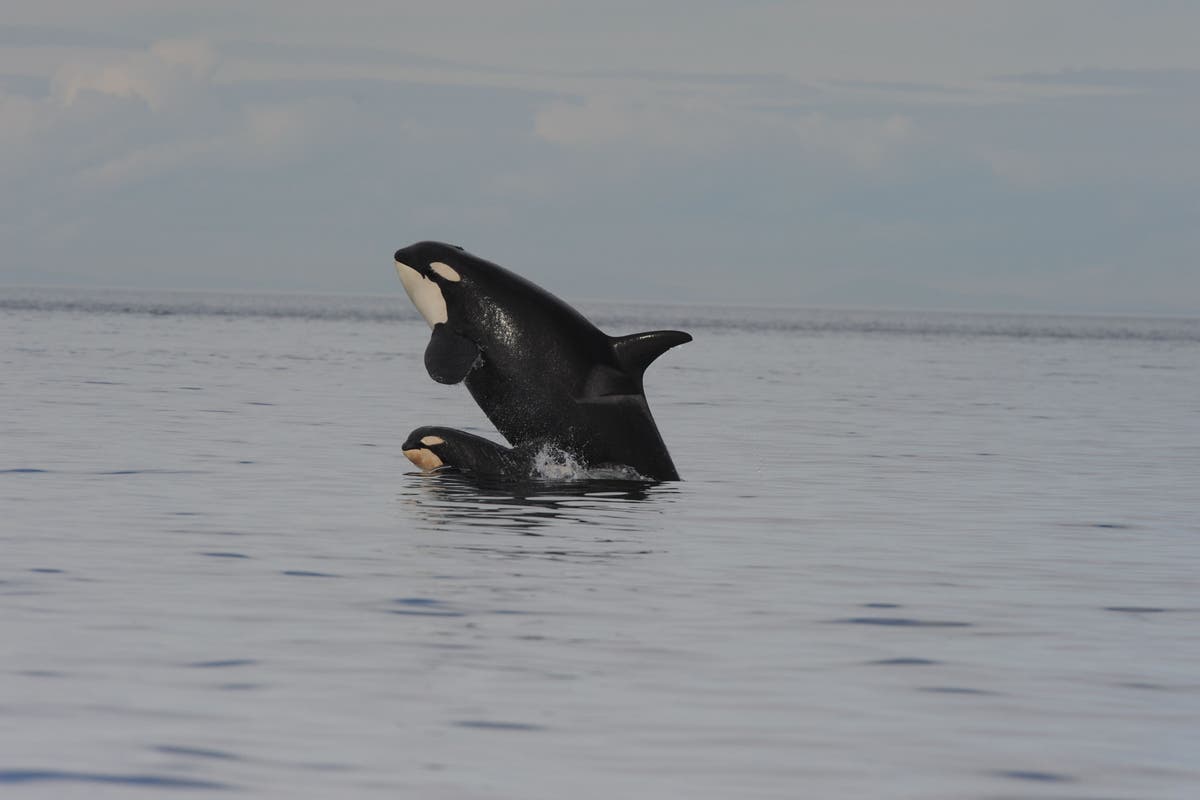
Raising sons is an exhausting experience that leaves killer whale mothers less likely to produce more offspring, a new study suggests.
According to the research, each living son cut a mother’s annual likelihood of successful breeding – a calf surviving to the age of one – by about half.
Furthermore, the effect continued as the sons grew older, indicating they were a lifelong burden on their mothers, the scientists said.
Killer whale, or orca, mothers are known to provide more support to sons than daughters, especially after daughters reach adulthood.
Killer whale mothers pay a high cost in terms of their future reproduction to keep their sons alive
Dr Michael Weiss, University of Exeter
Researchers suggest the findings confirm that this support comes at a considerable cost to the mothers.
The study was carried out by the universities of Exeter, York and Cambridge, and the Centre for Whale Research.
Dr Michael Weiss, of the Centre for Research in Animal Behaviour at the University of Exeter, said: “Our previous research has shown that sons have a higher chance of survival if their mother is around.
“In this study, we wanted to find out if this help comes at a price.
“The answer is yes – killer whale mothers pay a high cost in terms of their future reproduction to keep their sons alive.”
In the study, researchers used data from 1982 to 2021 on 40 females in the “southern resident” killer whale population, which live off the Pacific coast of North America.
Both male and female resident killer whales stay in the group they were born into, and each group is led by an experienced female.
The southern resident orcas are fish-eating whales and feed predominantly on salmon.
Mothers commonly bite salmon in two, eating half and giving half to their sons.
Although the mothers also feed their daughters, this stops when they reach reproductive age.
But the sons continue to be fed into adulthood.
The scientists suggest the strategy is unusual and could even be unique.
Explaining how this could have evolved, Professor Darren Croft, Professor of Animal Behaviour at the University of Exeter, said mothers gain an “indirect fitness” benefit: helping their sons survive and reproduce improves the chances of their genes passing to future generations.
But the approach may now cause problems for the future viability of the population.
Southern resident killer whales specialise in eating Chinook salmon, but these fish have become scarce in many parts of the whales’ range, with many stocks threatened or endangered.
With the food limited, the southern residents are also endangered.
Just 73 southern resident killer whales remain and – as they do not interbreed with other killer whale populations – this number is critically low.
Prof Croft said: “For this population that’s living on a knife’s edge, the potential for population recovery is going to be limited by the number of females and those females’ reproductive output.
“A strategy of females reducing reproduction to increase the survival of male offspring may therefore have negative impacts on this population’s recovery.”
The study, published in Current Biology, was funded by the Natural Environment Research Council (UK) and National Marine Fisheries Service (US).
For all the latest Science News Click Here
For the latest news and updates, follow us on Google News.

